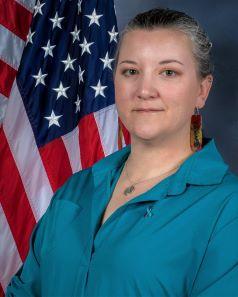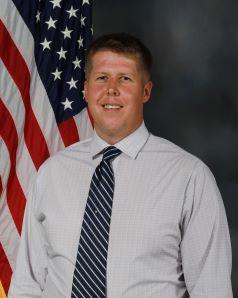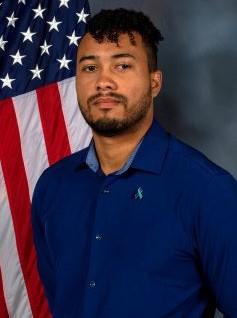
Resilience, Risk Reduction & Suicide Prevention (R3SP)
R3SP is the Army’s strategy for strengthening individual and unit Personal Readiness and fostering a culture of trust. R3SP provides training and resources to the Army Family to enhance resilience and optimize performance. R3SP reinforces the Army Values, beliefs and attitudes, and educates members of the Army team about the importance of building connections with each other, taking care of one another, and being there to support fellow Soldiers.
The primary mission of the R3SP Program is to ensure the force is properly trained in:
- Resilience Skills provided by a certified Master Resilience Trainer (MRT)
- Deployment Cycle Readiness Training by a Master Resilience Trainer certified in DCRT (DCRT)
- Suicide Prevention Skills through the use of the Army's Ask, Care, Escort (ACE) model.
- Suicide Intervention Skills through the Army's Ask, Care, Escort - Suicide Intervention (ACE-SI)
- Substance Abuse Prevention Training through Target Prevention Training and Deterrence Education (TPT)
- Assessment of unit readiness and personnel well-being through the Unit Risk Inventory/Reintegration Unit Risk Inventory (URI/R-URI)
The secondary mission of the R3SP Program is to ensure any possible death by suicide of any service member is fully investigated, with a focus on areas where the Army National Guard can improve or lessen the likeliness that a service member will have thoughts of suicide.
The R3SP Program incorporates the offices of the State Resilience Coordinator (SRC), the Suicide Prevention Coordinator (SPC) and the Substance Abuse Program (SAP). R3SP also coordinates the NCARNG Commander's Ready and Resilient Council (CR2C), a once quarterly meeting designed as the Adjutant General's strategic platform to articulate the focus, conditions and resources to oversee the execution of the NCARNG's Ready and Resilient (R2) objectives. For more resources, visit the Army Resilience Directorate.
Contact Us via Email!
NG NC NCARNG Mailbox G1-SSS R3SP
---

Resilience, Risk Reduction & Suicide Prevention Coordinator (R3SP)
Ms. Eckerd, Hannah G.
984-664-6714

State Resilience Coordinator (SRC)
(VACANT)
984-664-6714
(Please direct all inquiries to ng.nc.ncarng.mbx.g1-sss-r3sp@army.mil until position is filled)

Risk Reduction Coordinator (RRC)
Mr. Johnson, David
984-664-7015
david.f.johnson127.ctr@army.mil

Suicide Prevention Coordinator (SPC)
Ms. Beal, Abigail K.
984-664-6376

Prevention Coordinator (PC)
Ms. Vines, Tainasha M.
984-664-6472

Prevention Coordinator (PC)
Mr. Uri Simmers
984-664-6832
Additional Resources
NCNG Integrated Behavioral Health System
For consultation on a behavioral health issue with a reserve component Service or Family Member call the NCNG IBHS to connect quickly and confidentially with the on-call licensed IBHS Clinician
24-Hour Toll-Free Number: 1-855-322-3848
If you, or the person you are calling about, are in an imminently dangerous suicidal or homicidal situation, call 911 now.
Veterans Crisis Hotline
Phone: 988 (option 1 for veterans)
Military OneSource
Military OneSource is a confidential Department of Defense-funded program providing comprehensive information on every aspect of military life 24 hours a day by telephone and online at no cost to active duty, Guard and Reserve Component members, and their families.
Phone: (800) 342-9647
National Call Center for Homeless Veterans
If you are or know a Veteran who is homeless or at risk of becoming homeless, you may contact the National VA Call Center for Homeless Veterans. These resources are also available to Veterans’ family members and friends, VA medical centers, VA partners, community agencies, and service providers.
Dial +1-877-424-3838 and Press 1, 24/7.
War Vet Call Center
Call 1-877-927-8387, 24/7 to reach the Vet Center Call Center and talk about your military experience or other concerns during your transition from military to civilian life. The team is comprised of Veterans from several eras as well as family members of Veterans.
Women Veterans Call Center
The Women Veterans Call Center (WVCC) provides VA services and resources to women Veterans, their families, and caregivers. You can also chat online anonymously with a WVCC representative.
Call 1-855-VA-Women (1-855-829-6636) 8 a.m.–10 p.m. ET, Monday–Friday;8 a.m.–6:30 p.m. ET, Saturday.
Chat 8 a.m.–10 p.m. ET Monday–Friday, 8 a.m.–6:30 p.m. ET, Saturday.
Caregiver Support
If you are caring for a Veteran, the VA Caregiver Support Program offers training, educational resources, and a variety of tools to help you succeed.
Call 1-855–260–3274, 8 a.m.–8 p.m. ET, Monday–Friday for advice on being a caregiver.
Find your local Caregiver Support Coordinator.
Alcohol and Drug Council of North Carolina
Screening and appropriate referrals to support services for alcohol/drug misuse. We know that stigma and shame prevent people from accessing the help that they need. We know that people need assistance navigating the fragmented system of care. We exist to stand in the gap and to save lives because people matter. (501(c)(3) nonprofit organization)
CR2C
The Army promotes resiliency through the Ready and Resiliency Campaign. The campaign integrates and synchronizes multiple efforts and initiatives to improve the readiness and resilience of the Total Army-Soldiers (active duty, Reserve, National Guard), Army civilians and Families. For further information, contact NCNG R3SP at ng.nc.ncarng.mbx.g1-sss-r3sp@army.mil.

24 Hour Help Line: 1-855-322-3848
IBHS offers 24-hour connection to in-house licensed psychotherapists and professional wellness advocates for crisis intervention, assessment, and resource connection for behavioral health needs as well non-clinical needs exacerbating current mental health obstacles that impact overall wellness.
IBHS services include but are not limited to:
24/7 professional help and crisis intervention
Free for all Reserve Component Service Members and their Families
Thorough assessment of needs including PTSD and TBI screenings
Immediate consultative guidance for Command and Families
Psychiatric and substance abuse hospitalization
In-house evidenced based behavioral health treatment
Virtual tele-mental health and external referral connections available
Assistance with entitlement and benefit enrollment
Emergency funds
Food, utility, and mortgage relief
Housing and emergency shelters
Parenting, marital resources
Religious, employment, legal referrals
Etc.
The IBHS Psychotherapists are regionally located throughout the state and are housed in NCNG armories to give Service Members full access to care.

Sexual Harassment/
Assault Response & Prevention (SHARP) Program
The SHARP program helps to achieve the goal of the Secretary of Defense to eradicate sexual assault and sexual harassment from the military. SHARP helps to create an Army culture where all Soldiers have the values, tools, and skills to prevent sexual violence. SHARP also provides sensitive care and confidential reporting for victims of sexual assault while holding offenders accountable for their actions.
Contact
Mr. Kristian S. Hall
North Carolina National Guard
JFHQ Sexual Assault Response Coordinator (SARC)
Office Phone: (984) 664-6909
SARC Confidential Cell: (919) 410-1960
Email: kristian.s.hall.mil@army.mil
Ms. Kiila M. Patterson
North Carolina National Guard
JFHQ Victim Advocate Coordinator (VAC)
Office Phone: (984) 664-6707
SARC Confidential Cell: (919) 410-2284
Email: kiila.m.patterson2.civ@army.mil
Goals of the SAPR Program
Create a climate that minimizes sexual assault incidents, which impact Army personnel, Army civilians, and Family members, and, if an incident should occur, ensure that victims and subjects are treated according to Army policy
Create a climate that encourages victims to report incidents of sexual assault without fear.
Establish sexual assault prevention training and awareness programs to educate Soldiers.
Ensure sensitive and comprehensive treatment to restore victims’ health and Well-being.
Ensure leaders understand their roles and responsibilities regarding response to sexual assault victims, thoroughly investigate allegations of sexual assault, and take appropriate administrative and disciplinary action. subjects are treated according to Army policy.
DOD Safe Helpline
Call: 877-995-5247
Text:
55-247 (inside the US)
202-470-5546 (outside the US)
Sexual Assault Support for the DoD Community
Live 1-on-1 Help
Confidential
Worldwide 24/7
After a sexual assault, you are not alone... someone is there to help.
Contact a Safe Helpline to connect with a trained professional and get needed support.

Psychological Readiness Program
The Psychological Readiness Program (PRP) provides timely and efficient assessment and management of Soldiers experiencing psychological health conditions that jeopardize their medical readiness and deployabilty.
The mission of the PRP is to provide preventive, remedial, and support services aimed at improving and sustaining the psychological health and readiness of NCARNG military members.
The PRP team is comprised of skilled and experienced licensed behavioral health clinician/case managers and non-clinical case managers. Clinicians are embedded with brigade HQs across the state with the lead clinician based at JFHQ. PRP clinicians are highly mobile assets with frequent movement to remote unit locations to ensure access to care, increase help-seeking behavior, reduce stigma and train unit leaders on suicide prevention. PRP case management assists individual Soldiers in becoming "Fully Medically Ready" (FMR) through the provision of screening, education, referral and prevention services.
The PRP clinicians work directly with NCARNG M-day Behavioral Health Officers (BHO) and Behavioral Health Technicians to support the mission of Soldier medical readiness throughout the state.
The NCARNG PRP strictly adheres to state and federal statutes concerning ethics and confidentiality with the exception of DoDI 6490.04 and DoDI 6490.08 "Command Need to Know" requirements.
Contact
Miriam Bromirski, MSW, LCSW
Director of Psychological Health
Phone: (984) 661-4942 Ex: 14942
Email: miriam.s.bromirski.mil@army.mil
NCARNG Mailbox G1-PRP: ng.nc.ncarng.mbx.g1-behavioral-health@army.mil
Psychological Readiness Program (PRP) Services
- Command Directed Behavioral Health Evaluations
- Soldier Readiness Evaluations
- Periodic Health Assessments
- Command/Soldier Consultations
- Risk Mitigation
- Case Management
- Acute Intervention
- Fitness for Duty Determinations
- MOB/DEMOB processing
Key Objectives
To Conserve the psychological readiness of the NCNG by proactively identifying Soldiers with elevated behavioral health symptoms and resourcing internal and external supports aimed at maintaining a ready force.
To Act within the scope and ethical standards of our professional licensure and Army regulations.
To Retain our Soldiers by supporting rehabilitation efforts and recognition of recoverable conditions that may lead to ETS or involuntary separation if untreated.
To Enhance the fighting strength of the NCNG by collaborating with military and civilian professionals to provide comprehensive Soldier care while increasing resilience and decreasing stigma.
Click here for the NCNG Integrated Primary Prevention Brochure!

Mission: To implement an adaptive and research-based integrated prevention system to increase protective factors that reduce the prevalence of harmful behaviors to protect our Soldiers, Airmen, Employees, and their Families.
IPP Team Email: ngnc-integrated-primary-prevention@army.mil
The Comprehensive Integrated Primary Prevention Plan(CIPP) describes the current primary prevention goals for the NCNG. It is published semi-annually upon TAG approval.
End State
Increase
- Individual & Unit Protective Factors
- Unit Culture/Climate/Cohesion
- Help-seeking behaviors
- Inclusion
Decrease
- Harmful & prohibited behaviors
- Self-harm
- Child abuse
- Sexual Assault
- Sexual Harassment
- Racism / Extremism
